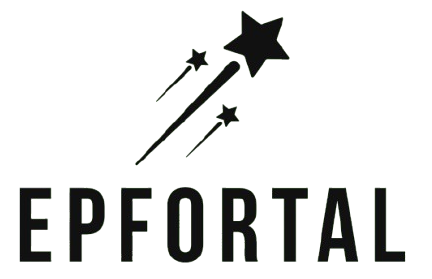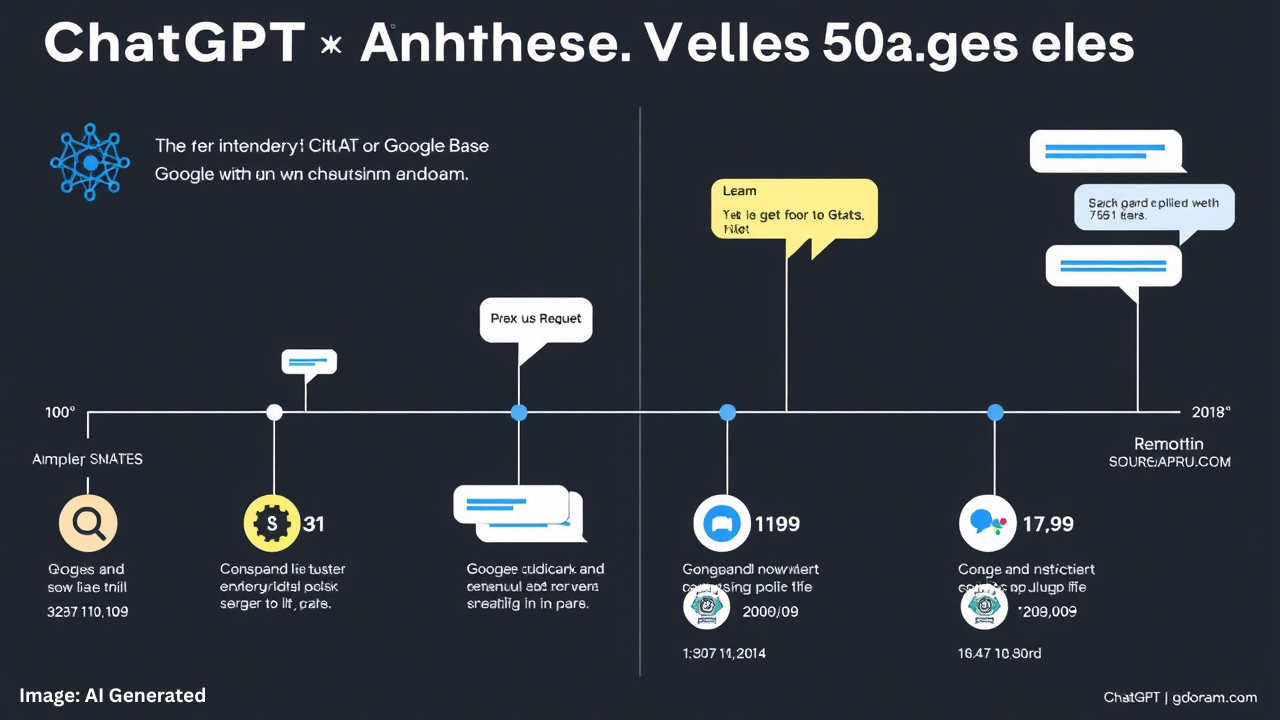In 2024, ChatGPT recorded an astonishing 365 billion annual searches, a milestone that took Google over a decade to reach after its launch in 1998. This rapid surge highlights how artificial intelligence (AI) is transforming the way we find and interact with information every day. As someone deeply involved in the tech industry, I find this shift fascinating and believe it marks a fundamental change in digital behavior worldwide. Whether you’re a casual internet user or a professional relying on advanced AI tools, understanding why ChatGPT has grown so quickly and what it means for the future of information retrieval is essential. This article breaks down the facts, trends, and practical insights around ChatGPT’s explosive growth in simple, clear language — perfect for anyone, even a 10-year-old, while also offering valuable knowledge for industry professionals.
Quick Summary
- User Base: ChatGPT has surpassed 700 million users globally.
- Subscribers: Around 20 million paying subscribers use premium features.
- Revenue: The AI tool generated over $4 billion in 2024.
- Search Experience: ChatGPT provides more personalized, conversational, and context-aware results than traditional search engines.
- Global Reach: The United States and India each contribute 16% of ChatGPT’s global traffic.
- Future Impact: AI tools like ChatGPT are poised to redefine how we access and process information online.
Understanding ChatGPT’s Rapid Growth
What Exactly Is ChatGPT?
ChatGPT is an AI-powered chatbot developed by OpenAI that uses advanced natural language processing to interact with users conversationally. Unlike traditional search engines that deliver a list of links, ChatGPT provides direct answers, explains complex topics in simple language, helps draft emails, generates creative content, and even assists with coding.
This kind of AI belongs to a group called Large Language Models (LLMs). These models are trained on enormous datasets — including books, websites, and articles — to understand and generate human-like text. ChatGPT’s ability to mimic natural conversation makes it not just a search tool but also a creative assistant and learning aid.
ChatGPT Records 365 Billion Annual Searches: How Did ChatGPT Reach 365 Billion Searches So Fast?
The speed of ChatGPT’s growth is unprecedented. Google took 11 years to reach this number of annual searches after its 1998 launch, while ChatGPT achieved it in just about six years from its initial AI research beginnings and only a few years after the public rollout. Here are the main drivers behind this explosive popularity:
- Enhanced Search Experience: ChatGPT answers questions in a conversational way, making it easier to get nuanced, clear, and tailored information. Instead of scrolling through many websites, users get precise explanations instantly.
- Global Accessibility: With the spread of smartphones and high-speed internet worldwide, millions of people now have easy access to AI tools anytime, anywhere.
- User Behavior Shift: People increasingly prefer interactive AI assistants for problem-solving, learning, and entertainment rather than traditional search engines.
- Improved Multilingual Support: ChatGPT supports many languages, allowing it to reach diverse global audiences and break language barriers that sometimes limit traditional search engine use.
- Continuous Updates and Improvements: OpenAI frequently updates ChatGPT’s underlying models to improve accuracy, reduce bias, and expand its capabilities, keeping users engaged and satisfied.
Breaking Down ChatGPT’s Impact — A Practical Guide
1. For Everyday Users
If you’re someone who uses the internet for quick answers, ChatGPT feels like having a helpful tutor or assistant on call. Here’s how you can make the most of it:
- Ask detailed questions: The more specific you are, the better the AI can tailor its response. For example, instead of asking “Tell me about planets,” ask “What are the main differences between Mars and Earth?”
- Use ChatGPT for learning: Whether it’s history, math, or science, it can break down tough concepts in kid-friendly ways. This makes it an excellent tool for students or anyone eager to learn new topics.
- Save time on writing: From emails to essays, ChatGPT can draft and proofread your texts efficiently. You can even ask it to rewrite sentences to sound more formal or casual depending on your needs.
- Get creative help: Whether you want a poem, story ideas, or help brainstorming, ChatGPT can generate creative content that inspires you.
2. For Professionals and Businesses
ChatGPT is also a powerful tool for professionals across many industries:
- Content creation: Automate blog writing, marketing copy, social media posts, or customer responses. This can save time and reduce costs while maintaining quality.
- Coding help: Software developers use ChatGPT to generate code snippets, find bugs, or understand new programming concepts faster.
- Customer support: Businesses integrate ChatGPT-powered chatbots to handle routine customer queries 24/7, improving response time and freeing human agents for complex issues.
- Data analysis and reports: AI can interpret and summarize complex reports or datasets quickly, aiding decision-making.
- Training and onboarding: Companies use ChatGPT to create interactive training materials or answer new employees’ questions instantly.
3. For Educators and Students
- Personalized learning: ChatGPT adapts explanations to different skill levels, making it easier to understand challenging subjects.
- Homework help: Students can use ChatGPT to get step-by-step guidance on assignments, enhancing comprehension.
- Language learning: Practicing conversational skills and vocabulary with instant feedback helps learners improve fluency.
- Curriculum development: Teachers can use ChatGPT to generate lesson plans, quizzes, and learning materials tailored to their students’ needs.
The Global Footprint of ChatGPT
According to recent data, the U.S. and India each account for 16% of ChatGPT’s global traffic. This shows how AI has become a truly international phenomenon. Countries with growing internet users are rapidly adopting AI tools, closing digital divides and democratizing knowledge access.
This widespread adoption is supported by the global proliferation of mobile internet and affordable smartphones, allowing people in both developed and developing countries to engage with AI technologies. Additionally, OpenAI’s efforts to expand language capabilities make ChatGPT accessible to non-English speakers, further broadening its reach.
Why Does This Matter for the Future?
The rise of ChatGPT signals a paradigm shift in how we approach digital information:
- Search engines will evolve from link-based results to AI-powered conversational experiences that understand context and nuance.
- Workflows will become more efficient as AI handles repetitive and time-consuming tasks, freeing humans for creative and strategic work.
- Education and training will become more accessible globally, personalized to individual learning styles and paces.
- Privacy and ethics in AI use will become critical areas for regulation and development to ensure responsible, fair, and safe deployment.
- New job roles and industries will emerge focused on AI development, management, and oversight, requiring workers to adapt and reskill.
As professionals, keeping pace with these changes is vital to stay competitive and harness AI’s full potential. This means investing in learning about AI tools, understanding their strengths and limitations, and applying them ethically in your work.
Overall Summary
ChatGPT’s milestone of 365 billion annual searches in 2024 is a clear sign that AI is reshaping how we interact with information online. Its conversational, accessible, and personalized approach has captured the attention of millions globally, signaling a shift in user expectations and digital behavior. For everyday users, professionals, and educators alike, embracing AI tools like ChatGPT can unlock new efficiencies, creativity, and learning opportunities. As AI continues to evolve, staying informed and adapting to these changes will be key to thriving in the digital age.
Read More
New AI Tool From Perplexity Labs Turns Ideas Into Web Apps in Seconds
FAQs on ChatGPT Records 365 Billion Annual Searches
Q1: How reliable is the information ChatGPT provides?
ChatGPT generates responses based on vast data but can occasionally produce inaccuracies or outdated information. Always verify important facts from trusted sources such as The Economic Times or Tom’s Guide.
Q2: Can ChatGPT replace traditional search engines like Google?
While ChatGPT excels in conversational and contextual queries, traditional search engines remain essential for browsing a wide variety of sources and multimedia content. Both tools can complement each other to enhance information discovery.
Q3: Is ChatGPT free to use?
Yes, there is a free tier with limited features. Premium subscriptions, which cost money, unlock advanced functionalities, priority access during peak times, and faster response rates.
Q4: How does ChatGPT make money?
Primarily through premium subscriptions and enterprise services, generating over $4 billion in 2024. This revenue supports ongoing research, development, and operational costs.
Q5: Is ChatGPT available worldwide?
Yes, though availability can vary based on regional internet policies and regulations. The highest user concentrations are currently in the United States and India, but usage continues to grow in other regions.
Q6: What about privacy and data security with ChatGPT?
OpenAI has implemented strong privacy and security measures, but users should avoid sharing sensitive personal information when interacting with AI. Understanding data use policies and staying cautious is always recommended.

